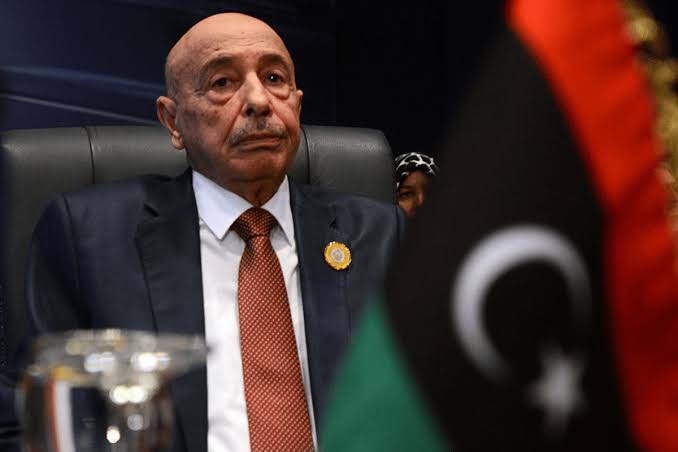The speaker of Libya’s eastern-based parliament, Aguila Saleh, has called for the urgent formation of a unified interim government to lead the country toward long-overdue national elections, intensifying a bitter power struggle with the Tripoli-based administration.
Addressing lawmakers in Benghazi on Tuesday, Saleh underscored the need to consolidate Libya’s fragmented institutions and warned that failure to do so could deepen instability and threaten national unity. He argued that only a single government—recognized across political and geographic divides—can deliver credible elections and a way out of the country’s prolonged crisis.
“The only path forward is elections. But they cannot happen without a government accepted by all Libyans,” Saleh said during the parliamentary session. He urged support from international partners, particularly the United Nations Support Mission in Libya (UNSMIL), and domestic stakeholders to advance the political process.
Saleh announced that the House of Representatives, based in eastern Libya, would soon hold a session to appoint a new prime minister. He extended invitations to foreign diplomats, UN officials, and civil society representatives to attend the proceedings, a move seen as a bid to lend legitimacy to the process.
The proposal drew an immediate rebuke from the Government of National Unity (GNU) in Tripoli, led by Prime Minister Abdul Hamid Dbeibah. The GNU, which was installed through a UN-brokered political agreement, maintains it cannot step aside without an electoral mandate. However, Saleh argued that Dbeibah should exit “voluntarily or by force,” citing recent clashes in the capital as evidence of the administration’s growing inability to maintain control.
Libya has remained politically fractured since the 2011 NATO-backed uprising that removed long-time ruler Muammar Gaddafi. Since then, two rival administrations have emerged—one in Tripoli, recognized by the international community, and another in the east, aligned with the Libyan National Army (LNA) and its commander, Khalifa Haftar, an ally of Saleh.
Plans to hold a presidential election in December 2021 collapsed amid legal disputes and disagreements over who could run. Since then, efforts to break the deadlock have repeatedly failed, with the GNU refusing to relinquish power and eastern leaders pushing to replace it with a new transitional authority.
As competing factions dig in, Saleh’s latest push raises fresh questions about Libya’s future governance and whether consensus on a political roadmap is still within reach.



